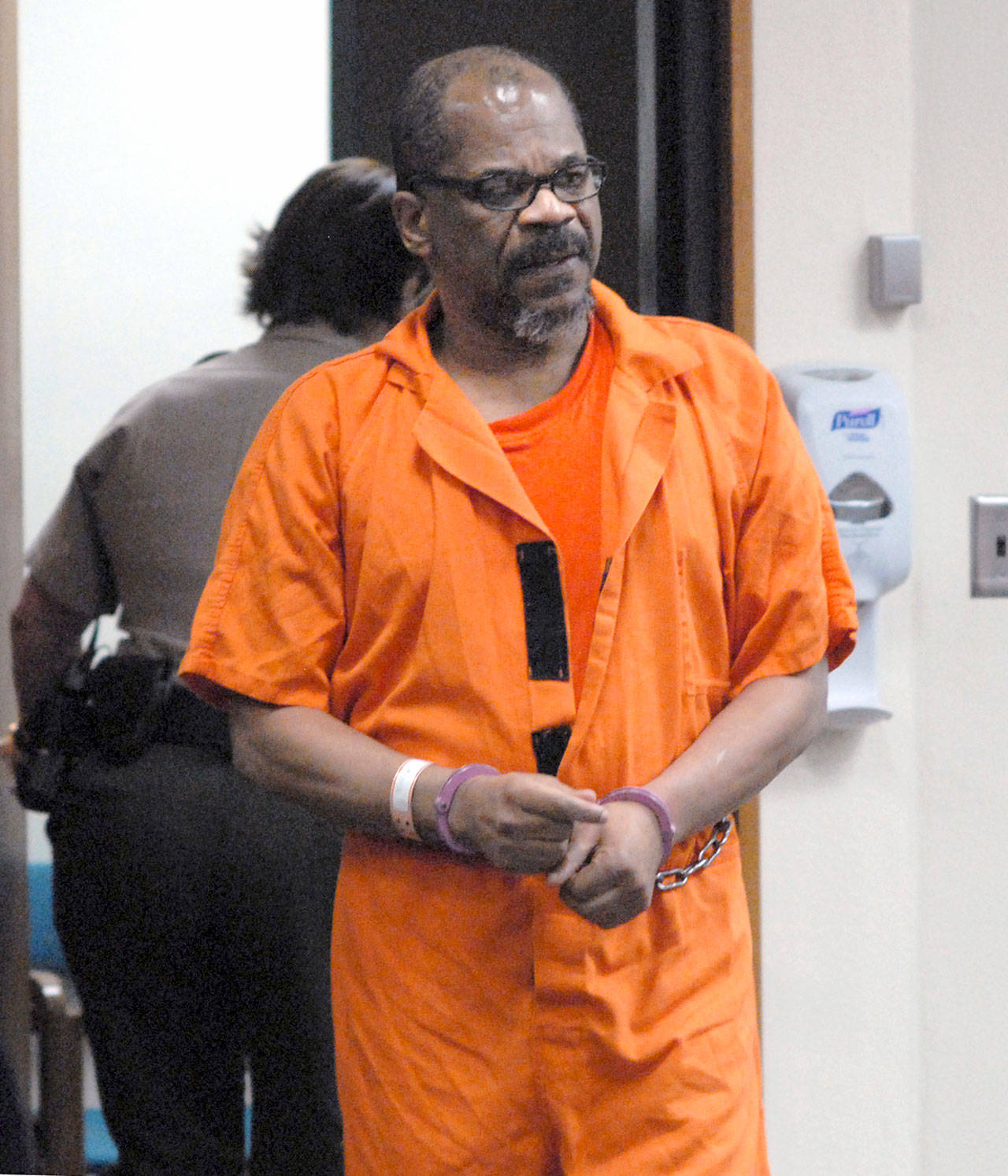OLYMPIA — The state Supreme Court has upheld the dismissal of a first-degree murder charge against Tommy Lee Ross Jr. in the decades-old case involving the strangulation death of Port Angeles resident Janet Bowcutt.
The court Friday let stand a state Court of Appeals decision that determined Ross’ constitutional right to a speedy trial was violated by the 38-year delay in the proceedings.
In doing so, the appeals court affirmed Clallam County Superior Court Judge Brian Coughenour’s Oct. 17, 2018, dismissal of the charge on speedy-trial grounds.
Justice Susan Owens, formerly of Forks, recused herself.
A second-degree murder charge was filed against Ross as an alternative.
Ross, 61, was charged with murder in June 1978 with the April 24, 1978, strangulation death of Bowcutt, the 20-year-old mother of a 6-month-old boy found unharmed on her bed while she lay dead on the floor.
Ross was arrested later that year for questioning in Los Angeles on separate murder and robbery charges but was allowed by the Clallam County Prosecuting Attorney’s Office to be extradited to Canada on a separate murder charge.
There he served 38 years for the 1978 murder of 26-year-old Janice Forbes of Victoria, killed three weeks after Bowcutt.
Nancy Collins of the Seattle-based Washington Appellate Project did not return calls for comment Monday.
“What this means is that the lower-court opinions are correct and that [the state Supreme Court is] not going to reconsider them,” said Port Angeles lawyer Lane Wolfley, who represented Ross for the superior court proceedings.
“If they had seen any error, they would have accepted review.”
The case “will definitely be a precedent,” Wolfley said.
Prosecuting Attorney Mark Nichols said Monday he will decide by next week whether to appeal the decision to the U.S. Supreme Court.
“The appellate briefing speaks to certain U.S. federal court case law we believe is not adequately addressed through the appeals court decision,” Nichols said.
“One reason to look at possibly appealing is presenting to [a federal court] their own case law and asking them to take a look at whether the state courts got the analysis correct or not.”
Wolfley argued during his motion to dismiss the case that the delay in Ross’ case was historically long.
“It was a major case for me to make that decision,” Coughenour said in an Oct. 23 interview, reflecting on his legacy while announcing his resignation in June 2020.
“It was an important murder trial and a constitutional issue on granting speedy trial,” he said.
“I think this case would stand for the proposition that if you have a major case in the U.S., you should be tried in the U.S. before you are sent to a foreign country to face some charge there.
“There was really no basis to send [Ross] to Canada.”
The appeals court rejected the argument by the prosecuting attorney’s office that Ross had failed to assert his speedy trial rights for decades, saying the failure “only slightly weighs against him.”
“A defendant has no duty to bring himself to trial,” the judges said, quoting the landmark federal speedy-trial case, Barker v. Wingo.
“We cannot ignore that the delay of 38 years is unprecedented in speedy trial cases.”
Thirty-eight years is the time between when 1978, when Ross was first charged in Bowcutt’s death, and November 2016, when he was charged a second time.
In 1978, then-Prosecuting Attorney Grant Meiner, later a Clallam County Superior Court judge, allowed Ross to be extradited to Canada while Ross was being questioned for murder in Los Angeles, believing Canada would return Ross to the U.S. after the Victoria trial.
Meiner failed to obtain an enforceable agreement to secure Ross’ return or to determine whether his return was likely once he had been convicted and sentenced, the appeals court said.
After Meiner made futile efforts to transfer Ross to Clallam County in 1979 and 1980, no effort was made to seek his extradition for 36 years, the judges said.
“The record shows that the State had little interest in prosecuting Ross at all, much less in a timely manner,” the judges said.
The passage of time also was a factor, appeals court said.
Referring to Coughenour’s rationale, the judges cited a fingerprint card lost or destroyed, impaired or faded memories of witnesses, the deaths of expert witnesses and law enforcement personnel, and Ross not being given legal counsel on the Clallam County case while in prison in Canada.
Ross is now in jail in Sacramento, Calif., He was incarcerated April 5 in the Sacramento County jail following an alleged altercation with family members involving a knife.
According to the jail register, he remained incarcerated Monday without bail on felony charges of assault with a deadly weapon and threats to commit a crime resulting in death or great bodily injury, and a misdemeanor charge of removing or destroying a wireless communications device to prevent someone from summoning assistance.
Ross remained ineligible for bail. His next court date is Dec. 4.
He admitted to two Port Angeles detectives in a 1988 interview that he killed Bowcutt and two other females in Anaheim and one other female in Los Angeles, according to his probable cause statement.
Wolfley said Ross denied making the confession, which was not recorded.
Ross was tied to Bowcutt’s death by a January 2018 DNA test results on a hair found on Bowcutt’s clothing.
________
Senior Staff Writer Paul Gottlieb can be reached at 360-452-2345, ext. 55650, or at pgottlieb@peninsuladailynews.com.

